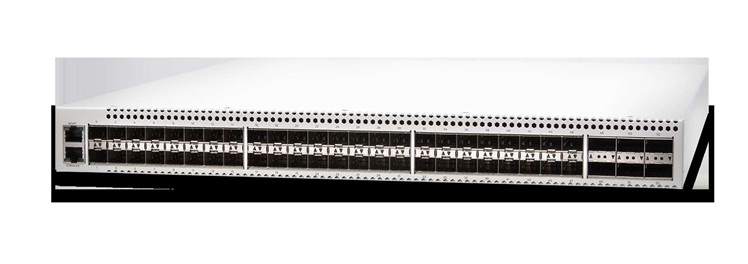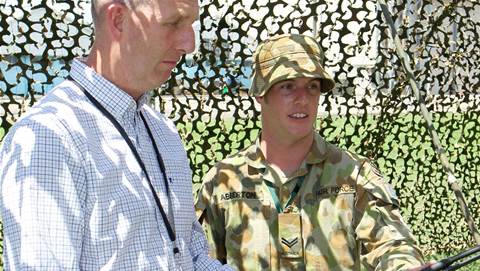Australian enterprise users will largely have to wait to take advantage of so-called "brite box" switches, the designs of which are loosely based on hardware championed by the likes of Facebook, Google and Amazon.

Analyst firm Gartner coined the term in December last year. 'Brite box' essentially describes a new class of vendor-supported whitebox switches that are being touted by Dell, Juniper and HP.
Brite boxes are seen by Gartner as a kind of middle ground "between traditional and whitebox switching", according to the firm's research note.
They allow customers to load and run the network switch operating system of their choice on the supplied switch hardware, but also come bundled with vendor support and maintenance.
One potential advantage of brite box adoption is cost - US$150-300 per port compared to US$300-400 per port for proprietary switches, according to Gartner.
But they are also expected to be easier to manage.
"Although these devices can be managed via traditional approaches (for example, command line interface), these switches natively support common Linux-based automation and management tools such as Puppet and Chef," Gartner said.
Hands on
One of the challenges for early adopters, however, may be to convince vendors to sell them one right now.
Only Dell - which was also the first vendor in the brite box space - is really targeting customers other than those running huge server farms.
"It's not only applicable for web-scale [environments]," Dell A/NZ's networking sales director Vijay Valayatham told iTnews.
"Even a mid-tier, mid-sized enterprise or especially a large enterprise that has its own data centre can leverage this technology."
HP Networking's CTO and vice president Mark Carroll believes brite boxes will "trickle down" but only when they get easier to manage.
"You'll see the bigger enterprises and verticals like financial and tier one carriers absolutely jumping in now," he said.
"But the reality is it takes a bit more effort than most of the smaller companies are willing to invest to actually operate brite box solutions.
"One of the things we're working on now is to lower that bar of entry quite a bit with turnkey management solutions. Until [we get there, brite boxes] won't necessarily go down to smaller enterprises."
Juniper Networks claims "anyone" can buy its first brite box - a 48-port, 10Gbps top of rack switch.
"We're not restricting [sales of] the product," its head of systems engineering for A/NZ Tim Nagy said.
But "anyone" isn't Juniper's target market.
"The target market for the switch is extremely large data centre deployments - we think in the range of 10,000-plus servers," Nagy said.
"The key feature of brite box solutions is the functions are typically designed or modified to be useful in an IT fabric environment which is a fairly specialised data centre environment that is used to deliver large scale web hosting.
"At the moment most native Australian enterprises don't fall in that category.
"When will this come to large enterprise in Australia? Not yet is the answer. We're not sure."
Under the hood
The three vendors in the brite box space so far are approaching product strategy slightly differently.
Dell has opened its switch hardware (starting with the S6000 and S4810 top of rack Ethernet switches) to run Linux network operating systems from either Cumulus or Big Switch.
HP and Juniper are not opening their own hardware, but are sourcing specific whitebox hardware for their brite boxes.
HP is using hardware from Taiwan's Accton Technology and ships with the Cumulus OS.
Meanwhile, Juniper's OCX1100 brite box is an Alpha Networks hardware design that runs a "lightweight" version of Juniper's own network operating system, JunOS.
All three vendors allow other operating systems to be loaded via the Open Network Install Environment (ONIE) boot loader, which comes pre-installed.
ONIE is now part of the Open Compute Project, a Facebook initiative to share and certify open data centre and equipment designs.
However, at least Juniper believes customers are unlikely to start swapping out the OS on a brite box.
"I think if you're buying a brite box switch versus a whitebox, you're doing so for the OS and the support from the vendor that's providing it," Nagy said.
Why now?
There is no consensus on why it took so long for network equipment to start becoming commoditised in the same way as the x86 server space.
Dell's Valayatham believes it is market-driven.
"I think partly because [the enterprise switch market has] been dominated by one vendor for so long," he said. "There's a lot of vested interest in keeping it that way."
One of those "interests", he said, was in selling certification - something that might become less important if network switch management becomes more automated.
"There's an interest in keeping certification costs high," he said. "Why do you really need so many skilled people to run the network? You don't - in the future.
"The biggest change is going to be a cultural shift within organisations, [similar to] mainframes going to x86. Nobody touches the server - they use tools. The same thing will happen in networking. But it's going to take some time."
Juniper's Nagy also sees market forces at play, but more around IT spend.
"My personal opinion is the network in terms of overall data centre spend historically has been a smaller percentage than servers and storage, so it's the last thing that has been addressed for cost optimisation," he said.
HP's Carroll believes hardware advances and the Facebook-driven Open Compute Project have been key drivers to brite boxes.
"The hyper scale operators continue to do quite a bit in showing others how to do this," he said.


_(23).jpg&h=140&w=231&c=1&s=0)


_(22).jpg&h=140&w=231&c=1&s=0)



_(26).jpg&w=100&c=1&s=0)

 iTnews Executive Retreat - Security Leaders Edition
iTnews Executive Retreat - Security Leaders Edition







+(2).jpg&h=271&w=480&c=1&s=1)




_(1).jpg&h=140&w=231&c=1&s=0)



